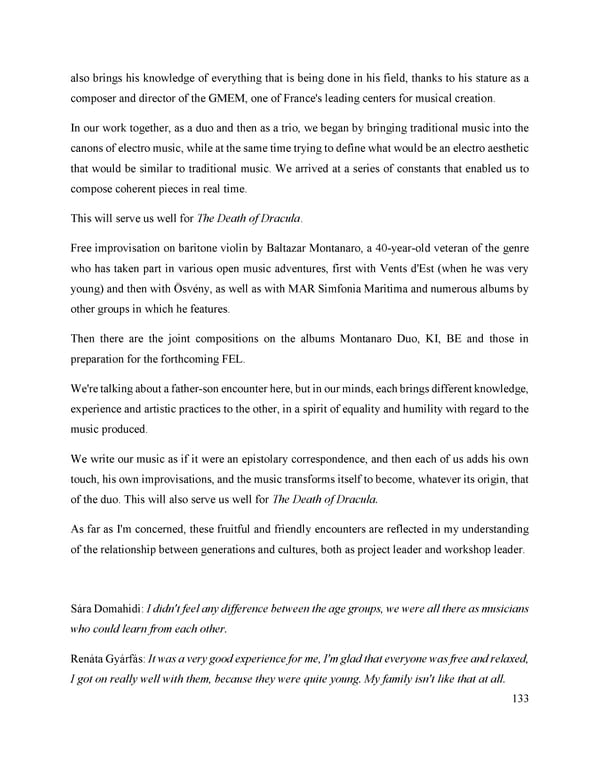also brings his knowledge of everything that is being done in his field, thanks to his stature as a composer and director of the GMEM, one of France's leading centers for musical creation. In our work together, as a duo and then as a trio, we began by bringing traditional music into the canons of electro music, while at the same time trying to define what would be an electro aesthetic that would be similar to traditional music. We arrived at a series of constants that enabled us to compose coherent pieces in real time. This will serve us well for The Death of Dracula. Free improvisation on baritone violin by Baltazar Montanaro, a 40-year-old veteran of the genre who has taken part in various open music adventures, first with Vents d'Est (when he was very young) and then with Ösvény, as well as with MAR Simfonia Maritima and numerous albums by other groups in which he features. Then there are the joint compositions on the albums Montanaro Duo, KI, BE and those in preparation for the forthcoming FEL. We're talking about a father-son encounter here, but in our minds, each brings different knowledge, experience and artistic practices to the other, in a spirit of equality and humility with regard to the music produced. We write our music as if it were an epistolary correspondence, and then each of us adds his own touch, his own improvisations, and the music transforms itself to become, whatever its origin, that of the duo. This will also serve us well for The Death of Dracula. As far as I'm concerned, these fruitful and friendly encounters are reflected in my understanding of the relationship between generations and cultures, both as project leader and workshop leader. Sára Domahidi: I didn't feel any difference between the age groups, we were all there as musicians who could learn from each other. Renáta Gyárfás: It was a very good experience for me, I'm glad that everyone was free and relaxed, I got on really well with them, because they were quite young. My family isn't like that at all. 133
 Lost Analogue: Exploring Film, Music, and Interdisciplinary Methods in Education Page 133 Page 135
Lost Analogue: Exploring Film, Music, and Interdisciplinary Methods in Education Page 133 Page 135